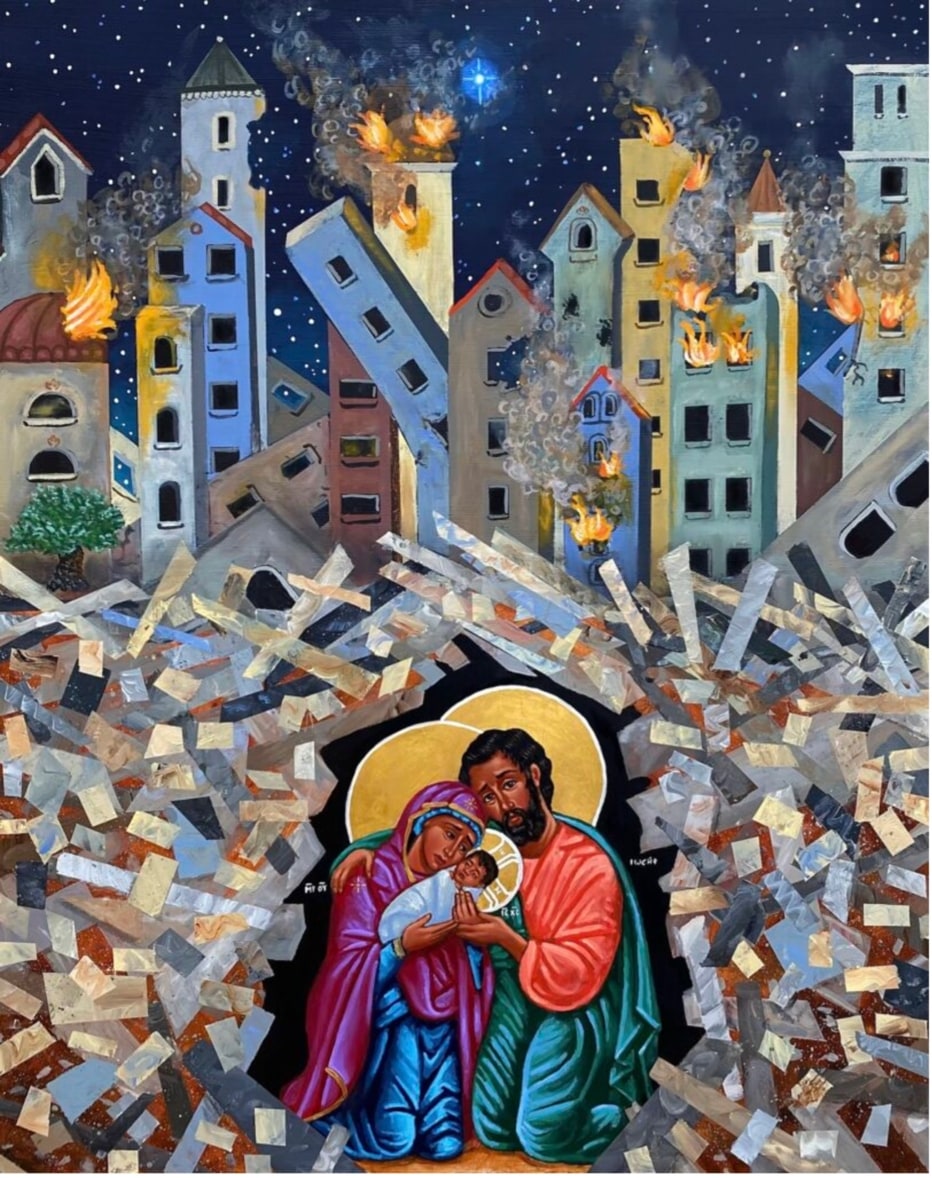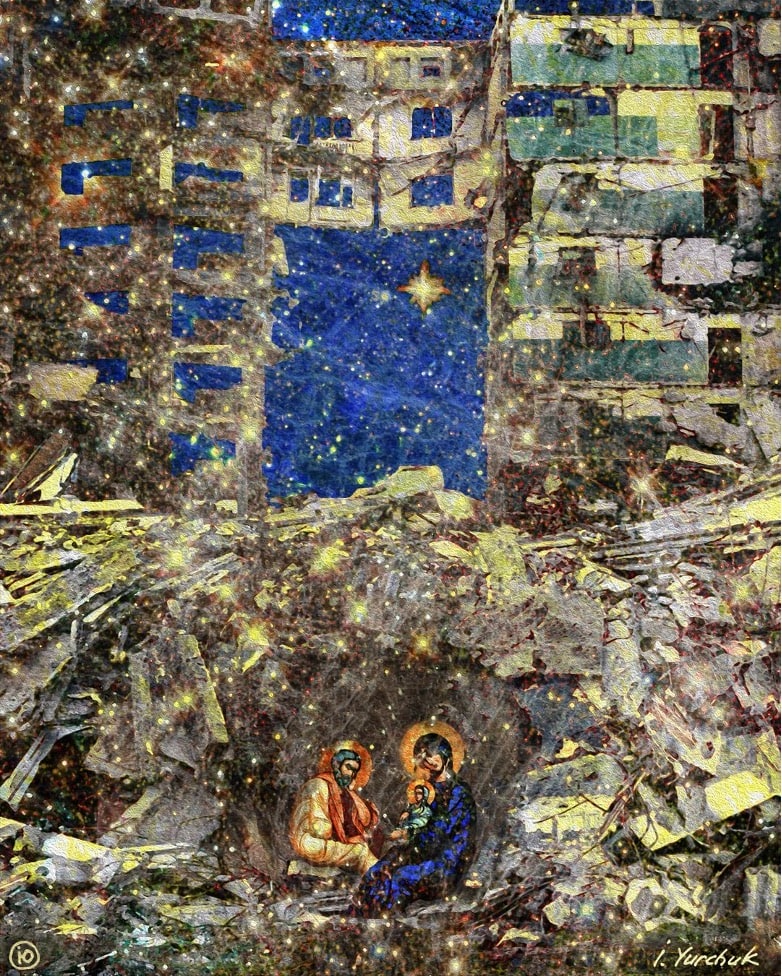
Sermons
The Light Still Shines
December 24, 2023
The prophetic utterances of Zechariah are often overlooked during Advent and Christmas. We find them at the end of Luke 1. You’ll recall that Zechariah was silenced for a season when he doubted that Elizabeth would bear a child. When their son John was born, the Holy Spirit enabled Zechariah to cry out (Luke 1:78-79). Zechariah sees into the future and knows that God will work through his son John, later known as John the Baptist, who will help show us the way of Christ. “By the tender mercy of our God,” Zechariah exclaims, “the dawn from on high will break upon us, to give light to those who sit in darkness and in the shadow of death, to guide our feet into the way of peace” (Luke 1:78-79). These words then lead us into Luke 2, “In those days a decree went out from Emperor Augustus that all the world should be registered” (Lk. 2:1). And soon the angels will announce to the shepherds, “Glory to God in the highest heaven, and on earth peace amongst those whom God favors” (Lk. 2:14-15). Christ is God’s light who will show us the way to a place of peace. Peace. The place of peace. It was all about and still is all about God’s peace. Later in Luke’s Gospel, Jesus grieves that the people would not recognize “the things that make for peace! But now they are hidden from your eyes” (Lk. 19:42). And the first words Jesus uttered to his friends on Easter morning was, “Peace be with you” (Lk. 24:36).
Peace. The things that make for peace feel hidden from our eyes this Christmas.
Every year, pastors and preachers debate about whether or not to preach on Christmas Eve. Some say, just tell the story. The story says all that needs to be said this night. If that’s true, then why preach at all, ever? Some say Christmas cries out for a sermon, but even the most seasoned preacher or learned theologian, in the end, comes up short before the mystery we proclaim this night. Some years, I offer a meditation; some years, I don’t. It depends on the year, I guess. Given the state of the world, the things that make for peace feel hidden from our eyes this Christmas.
Tonight, the Church of the Nativity in Bethlehem, the traditional place for the birth of Jesus, is dark. There are no services this night. There are no lights in the sanctuary. There are no crowds milling around Manger Square. The churches are silent. “O Little Town of Bethlehem…the hopes and fears of all the years are met in thee tonight.” [1] The Israel-Hamas war hovers over everything there—and here. The Russia-Ukraine war seems to be coming to a standstill. I’ve seen provocative contemporary icons of Mary, Joseph, and Jesus surrounded by the bombed-out rubble of Gaza, and I’ve seen similar images of Mary, Joseph, and Jesus surrounded by the rubble of Kyviv. Jesus, this year, it seems is born in the places of ruin. It’s a reminder that Jesus was born in places of suffering and strife, and if he were born today, he would be born “under the rubble” and, in many respects, is still born there, in the places of suffering and pain and war. Jesus is born among the ruins of Gaza. Jesus is born in Kyiv. Jesus is born in places where there is no peace. Jesus is also born in shells of rowhouses in Baltimore, where families once lived and thrived.
There are so many places this night, and we need to know the message of this night. This week, I came across a quote from a good friend, Brian Zahnd, a pastor in Missouri. Several years ago, I met Brian and his wife, Peri, while walking the Camino through Spain. We happened to find ourselves walking together. And I have to confess to you —and there are pastors here tonight, and in this congregation, who will understand—sometimes pastors don’t always tell others that we’re pastors when we’re away from the church. Sometimes, we don’t blow our cover. So Brian and I were walking and started talking and then talked about similar interests, similar authors we were reading, and thoughts we had. And finally, we came out and shared that we’re both pastors. Brian is the founder and lead pastor of Word of Life Church in St. Joseph, Missouri, a thriving non-denominational church. Brian said this week, “Christ is not just born in the beautiful places of our lives, as if we live in the idyllic bubble of a snow globe. Christ is also born in the worn-torn places of our lives, littered with rubber bullets and tear gas canisters.” And he offered this prayer, “O King born in Bethlehem, may you come to the broken and war-torn parts of our world; be our shepherd who leads us into the ways of peace. Amen.” The ways of peace.
We must guard against the sentimentality, nostalgia, and crass commercialism of this season that wants us to forget the kind of world Jesus came to love and still loves. My message this night is simple: that we would just know and remember again—or for the first time—that Christ’s light still shines. That light still shines. Soon, we will hear these words from John’s Gospel: “In him was life, and the life was the light of all people. The light shines in the darkness, and the darkness did not overcome it” (John 1:4-5). Or, in the words of the King James Version, it reads, “…and the darkness comprehendeth it not.” Comprehended. Katelaben (κατέλαβεν). This is what John wants us to know. This is what John is saying: that darkness could not grasp this light, darkness could not comprehend this light, darkness could not understand Christ’s light. And darkness still cannot grasp this light, and darkness still cannot comprehend this light, and darkness still cannot understand this light—Christ’s light. This is why we are here tonight.

Christ’s light still shines. Christ’s light entered the world millennia ago, and his light still shines. It might be difficult to see it, I know, but it’s there. Yes, the light still shines and shines all the brighter in the darkness, shines all the brighter when it exposes the dark and shadows of the world, the dark and shadows that “comprehendeth it not.” As John and other witnesses claimed, Christ’s light is different. Christ’s light does not vanquish the darkness. Christ’s light allows us to face the dark times and places. Sometimes, we think the struggle is light against darkness. But it’s not what the text says. The light comes, and the light illumines the darkness so that the darkness can become light; not to vanquish the darkness but to disarm it. In other words, the gospel we proclaim this night is that we don’t have to be afraid of the dark. For, Christ’s light shines within us, still—and Christ calls us this night to care for that light, to tend to that light, to nurture that light, and then to reflect that light in one another, and to remind one another that the light still shines in the world, in us, in them, in one another, in you. And to share this light. And my prayer is that you won’t forget to remind yourself tonight or somewhere during Christmastide or Epiphany that Christ’s light still shines in you.

This, friends, is the truth of this night. And this, friends, is the source of our joy. Like Christ’s light that the world doesn’t understand, neither does it understand the joy we proclaim this night. It’s why we can sing our carols of joy, even in dark times, with integrity. For this joy is not escapist, it’s not fantasy, it’s not illusion. It looks realistically at the world, this joy, and knows that the light still shines. And because that light still shines, we can cry out with joy. For the joy we proclaim and soon will sing this night is a defiant joy. It’s joy that is defiant and strong and tender. The source of that light is the source of our joy. So let us stand and shout and proclaim and praise God, singing, joy, joy, joy to the world!